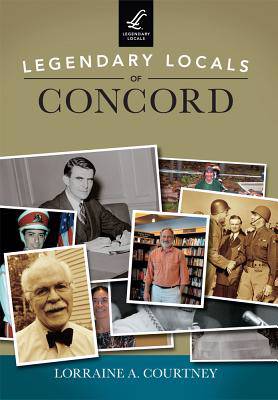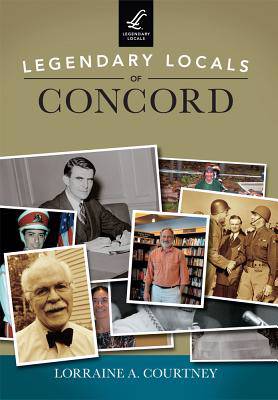
Bedankt voor het vertrouwen het afgelopen jaar! Om jou te bedanken bieden we GRATIS verzending (in België) aan op alles gedurende de hele maand januari.
- Afhalen na 1 uur in een winkel met voorraad
- In januari gratis thuislevering in België
- Ruim aanbod met 7 miljoen producten
Bedankt voor het vertrouwen het afgelopen jaar! Om jou te bedanken bieden we GRATIS verzending (in België) aan op alles gedurende de hele maand januari.
- Afhalen na 1 uur in een winkel met voorraad
- In januari gratis thuislevering in België
- Ruim aanbod met 7 miljoen producten
Zoeken
€ 34,95
+ 69 punten
Omschrijving
The land now called Concord was originally inhabited by the Abenaki people and the Penacook tribe. Concord's first settlers, such as Ebenezer Eastman, began laying out the Plantation of Penacook, as it was known in 1725, along the fertile fields of the Merrimack River. It was incorporated in 1734 as Rumford and then renamed to Concord by Gov. Benning Wentworth in 1765. Concord experienced a surge in transportation and manufacturing in the 19th century, producing the Concord Coaches, Prescott Pianos, and steam boilers. As Concord celebrates its 250th anniversary, the city flourishes as the state capital and has a thriving community of restaurants, entertainment, and culture for all to enjoy. It retains its town sensibility as it plans for the continued growth of the local economy. Today's civic leaders, like Byron Champlin and James Carroll, work conjointly with business leaders, such as Tom Arnold of Arnie's and Juliana Eades of the New Hampshire Community Loan Fund, to build and enhance Concord's cultural, social, and economic identity.
Specificaties
Betrokkenen
- Auteur(s):
- Uitgeverij:
Inhoud
- Aantal bladzijden:
- 128
- Taal:
- Engels
- Reeks:
Eigenschappen
- Productcode (EAN):
- 9781467101967
- Verschijningsdatum:
- 18/05/2015
- Uitvoering:
- Paperback
- Formaat:
- Trade paperback (VS)
- Afmetingen:
- 165 mm x 234 mm
- Gewicht:
- 362 g

Alleen bij Standaard Boekhandel
+ 69 punten op je klantenkaart van Standaard Boekhandel
Beoordelingen
We publiceren alleen reviews die voldoen aan de voorwaarden voor reviews. Bekijk onze voorwaarden voor reviews.









